Kisumu Archdiocese through Caritas office has reached out to assist People with Disabilities (PWDs) whom they felt had been overlooked in-terms of sensitization and provision of basic needs in the wake of COVID-19 pandemic.
Caritas “shares the mission of the Catholic Church to serve the poor and promote charity and justice throughout the world,” ensuring that the voices of the poor are heard and acted upon,” Fr. Samuel Nyattaya the Director Caritas Office, Kisumu told AMECEA Online in an interview Monday, April 20.
“We (Caritas Kisumu) teamed up with other Civil Society Organizations (CSOs) and formed a WhatsApp Group named Kisumu City Response. Different organizations in this group made their own interventions towards sensitizing the people of Kisumu on Covid-19,” he continued.
Fr Nyattaya further disclosed, “We noticed a gap in that there was a special category of people who had not received attention. These were the People with Disabilities (PWDs).”
“Immediately, we sprang into action to give them whatever support we could. The love of Christ, caritas Christi, urges us to make this response towards this category of the people of God,” Fr. Nyattaya explained.
The PWDs who have been carrying out small businesses within Kisumu town before COVID-19 outbreak, are currently in their homes with no jobs after government issued directives to be followed to help stem the spread of Coronavirus.
According to the cleric, the PWDs were “relocated from the usual market places where they used to sell their wares. In some cases, they were not considered in the allotment of spaces, owing to the vulnerability of some of them due to low immunity. They have been forced to stay at home (and) this heavily impacted on their daily living.”
“Every year, the Archdiocese of Kisumu, like all the dioceses in Kenya, carry out a campaign during the season of Lent. During these campaigns, people make contributions from their fasting. As we budget with this money, a huge chunk of it is allocated for social justice projects like helping people during humanitarian crisis,” he said.
Caritas Kisumu who managed to reach 65 PWDs irrespective of their faith, offered foodstuff which would be enough for about two days.
“This, we hope, can ease the burden of feeding their families, especially now that their businesses have been affected. We also gave them a bar of soap each, now that washing of hands is one of the ways of keeping the virus away,” the director added.
Asked about the future plan Caritas Kisumu has with PWDs, Fr Nyattaya who is also Director of Catholic Justice and Peace Commission (CJPC) disclosed that they intend to sensitize the PWDs on how to prevent themselves from Coronavirus and also reach out to those affected by floods.
“One huge gap we noticed in our interaction with the PWDs is the lack of proper information about Covid-19. There has not been a concerted education that has been tailor-made with the PWDs in mind. We engaged with Red Cross and did a small training for about 15 of them but we plan to link with our Health Department to organize a training for the PWDs on how to keep safe from the virus,” Fr. Nyattaya said.
Speaking as a beneficiary, Mr. Nick Mak’Ondwat said in a video clip posted in Caritas Archdiocese Kisumu Facebook page, “Most of us are back in the houses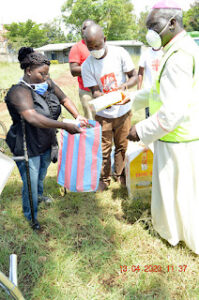 and that means we are doing nothing. Therefore, getting income is a challenge.”
and that means we are doing nothing. Therefore, getting income is a challenge.”
“Persons with disability have been really affected because all those who were doing businesses cannot continue with their work (and) I think this is one of the first activities we are seeing for distributing food for People with Disability, and we kindly request you to continue and even help us look for more support,” he added.
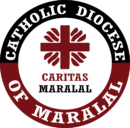
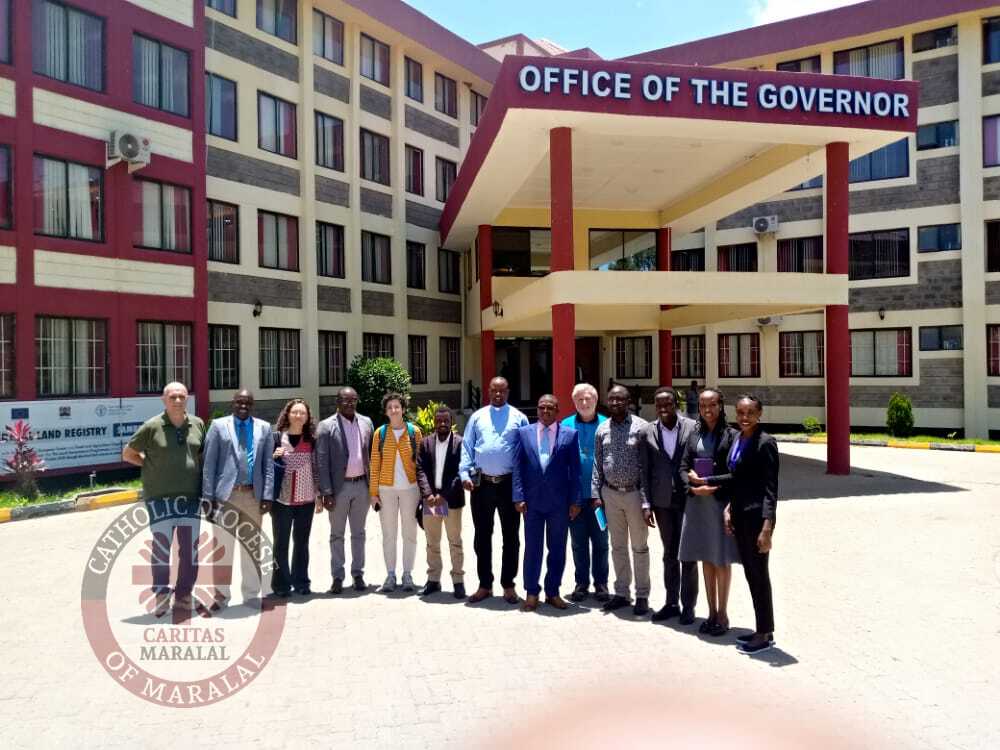
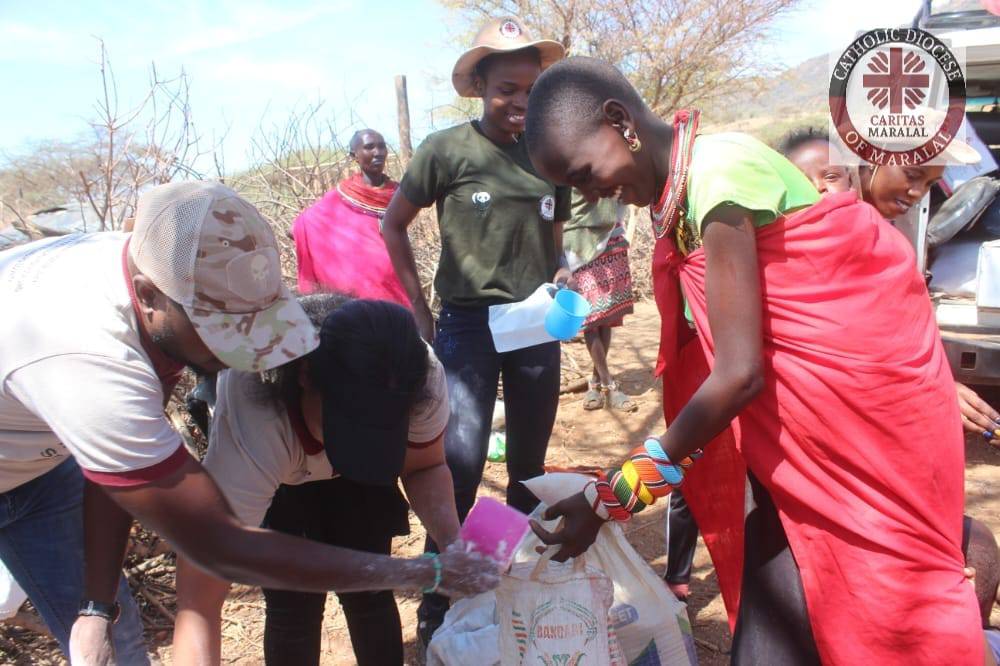


 2
2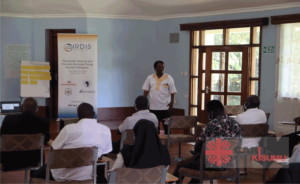
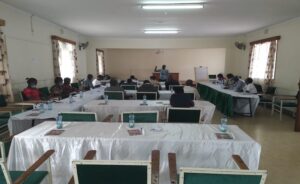 Commissioners of Justice and Peace, the Diocesan Coordinator, Rev. Fr. Samuel Nyattaya emphasized to the participants that the training on how to develop a Community Score Card is so important especially now that the country is gearing to the General Elections of 2022.
Commissioners of Justice and Peace, the Diocesan Coordinator, Rev. Fr. Samuel Nyattaya emphasized to the participants that the training on how to develop a Community Score Card is so important especially now that the country is gearing to the General Elections of 2022.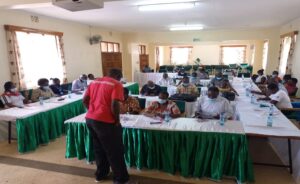
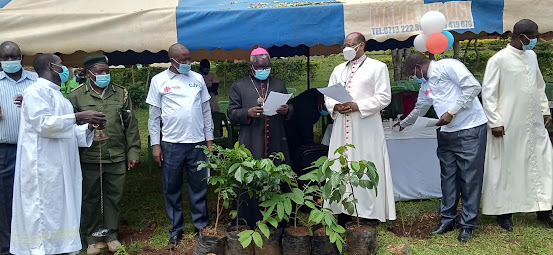
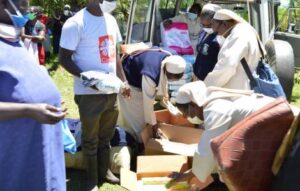
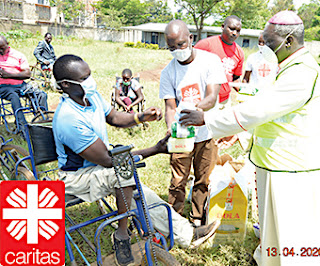
 and that means we are doing nothing. Therefore, getting income is a challenge.”
and that means we are doing nothing. Therefore, getting income is a challenge.”